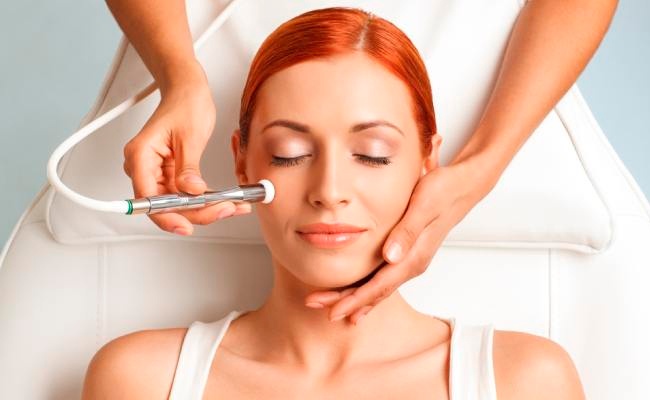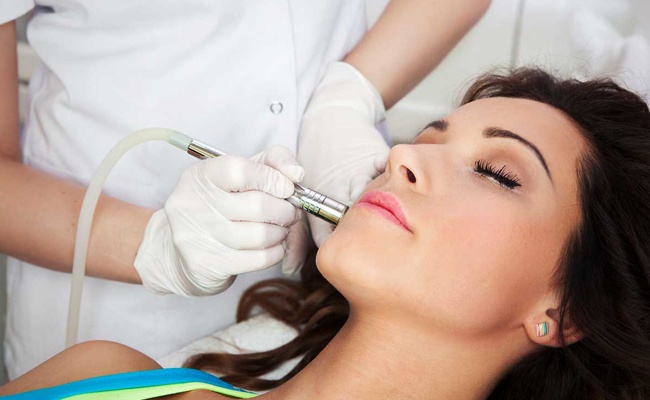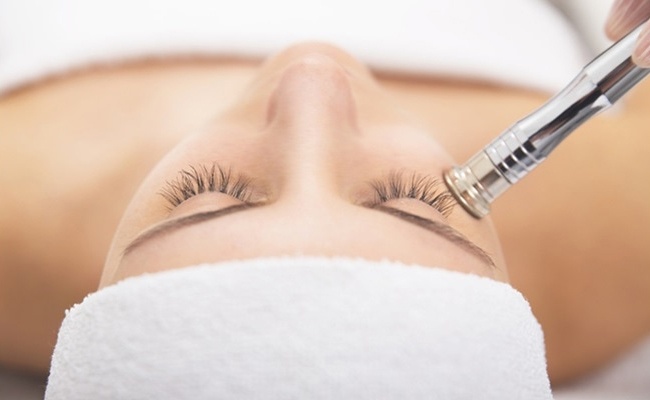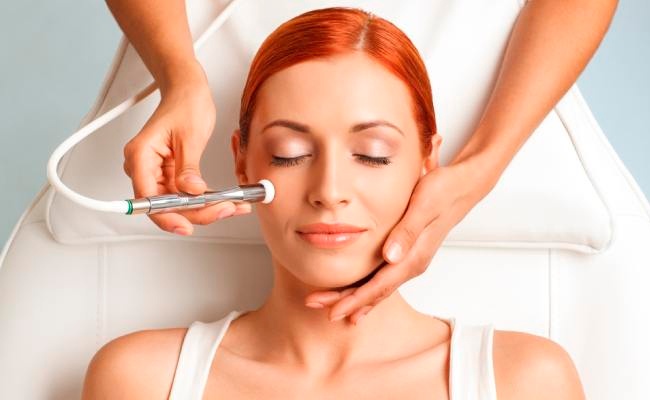
How's your skin looking these days? Is it on point? Do you wish it could be improved? Well if you're looking to rejuvenate your skin, microdermabrasion is a good option to try. Believe it or not, our skin takes a beating. The sun, wind, and even our diet can affect the quality of our skin. Smoking, drinking, and not getting enough water can also cause some damage. So can microdermabrasion help fix some of the harm to your skin? Well, we've got some information that can help you decide if it's right for you.
What is Microdermabrasion?
Basically, microdermabrasion is a painless, non-chemical, non-invasive procedure that uses a spray of microcrystals, and special suction equipment, to remove dirt and dead skin cells from the outermost layer of your skin. It also helps the production of new, cleaner, and fresher looking skin with higher levels of collagen and elastin.
What Does the Microdermabrasion Procedure Entail?
The microdermabrasion procedure has a few components. First, your skin is cleansed using a special gel to prepare. Then, the doctor starts the procedure using a hand-held device with which the microcrystals are sandblasted through a small tube pressed against the skin. The microcrystals work almost like a scrub to clear the skin. The tube also vacuums back dead skin cells and used microcrystals. The device is then moved across your entire face and not just on certain areas, so that your skin texture and color is completely even. Once done, your skin is soothed with a special nourishing sun blocking cream, allowing you to go enjoy the rest of your day immediately after treatment.
What's the Difference Between Dermabrasion and Microdermabrasion?
Dermabrasion is a medical procedure that uses a power driver hand-held device to remove the top layers of the skin. It may need general or a local anesthetic, depending on the treated area. Dermabrasion usually lasts longer, generally between one and two hours, depending on the damage and the area of the skin that needs resurfacing. After dermabrasion treatment, the skin is red, swollen and extremely sensitive for about 10 days. Dermabrasion can offer visible improvement by treating deep wrinkles, scars, and hyperpigmentation. Think of it like a deep, intensive cleanse for your skin.

Microdermabrasion is much less invasive and not as intensive. It can be performed in a spa, doctor's office or even at home using a personal home microdermabrasion kit. There is no need for anesthetic and it usually lasts anywhere between 30-45 minutes. Your skin might be a little sensitive, but not as much as with dermabrasion. Most people will see satisfying results within 24 to 48 hours.
Is Microdermabrasion Right for Me?
If you're looking to fix any severe scarring or deep skin marks you might be out of luck. Microdermabrasion cannot cure severe scarring or deeply spotted areas on your face and body. The procedure only works on the very top layer of the skin. So, if you're also trying to remove tattoos or treat severe burn scars you won't find much success. You might find more success with dermabrasion.
Are there any Risks?
When performed by a certified skin care professional, there are minimal risks with microdermabrasion. If there are any risks associated with microdermabrasion it is usually when it's being performed under unsterile conditions or improper application of the treatment. You could be at risk of contracting infections if the microdermabrasion applicator and vacuum are not properly sanitized.

If the machine is improperly used at too high a strength, there is a risk that your skin may be perforated by the fine crystals that are used to exfoliate the skin. There is also a risk that when improperly applied, the microdermabrasion crystals can enter your eye and cause irritation. Usually, most spas or doctor's offices will give you some sort of goggles to wear to prevent that from happening. These negative side effects of microdermabrasion are very rare, and they will not occur when the microdermabrasion procedure is properly performed.
Can I Try Microdermabrasion at Home?
Microdermabrasion can be done at home but you should discuss it with your dermatologist, after all, it's more intensive than a facial. All major cosmetic companies have at least one at-home microdermabrasion kit, which use different systems, foam, cream, sponges or treatments for your face or for the entire body. Home microdermabrasion systems, however, don't match the effectiveness of professional microdermabrasion treatment. You are likely to see better and more satisfying results by going to a professional spa.
What Should I Expect after a Microdermabrasion Session?

You will receive a sunscreen hydrating moisturizer after microdermabrasion, to avoid sun damage after leaving the doctor's office. Some redness might occur on treated areas, but it generally disappears after a few hours. During the first 24 hours, your skin may feel dry, similarly to effects of a mild wind or sunburn. Make sure to use lots of moisturizer during the first few days and avoid direct sun exposure for at least a week after the treatment. Also make sure to not use any peeling products for the next 3-4 days and avoid full-face make up (liquid foundation or pressed powder). This way you will preserve your skin the best you can.
Ready to Try Microdermabrasion?
If you think microdermabrasion is right for you, check out Liquivida Lounge in Fort Lauderdale. The staff are all well-trained, experienced professionals, who offer a warm and comfortable environment for you. They will make you feel at home while your there and they also offer many other different servces such as nutrient IV drips, PRP therapy, and lipotropic injections. Whatever your health goals are this year, try Liquivida Lounge for a pleasant and professional experience.








 By Liquivida®
By Liquivida®

